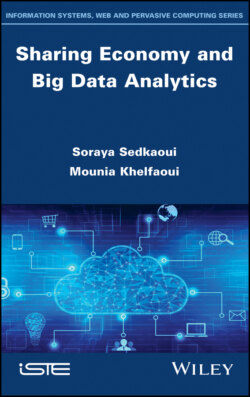Читать книгу Sharing Economy and Big Data Analytics - Soraya Sedkaoui - Страница 11
Introduction
ОглавлениеKnowledge is acquired through experience, everything else is information.
Albert Einstein
The discussion regarding sharing is very eloquent, it evokes a feeling of kindness and solidarity in each of us. It is used to express a desire to share a part of what we have with others: we can share a meal, an apartment or a car.
But can we share everything?
“I ask nothing more than to share my sorrows and joy.1”
Sharing is an interface between individuals, it concerns both concrete and abstract things. In this way, we can share our pain, our joy, our love and even our life. Sharing helps to alleviate the suffering of people in need who are living in poverty. When we give part of what we have, we eradicate the selfishness that lies dormant within us and awaken hope of our human values in others.
The notion of sharing is not a human invention, but a reality that has accompanied man since the dawn of time. It is the result of needing to live in a community and strengthen social ties; because living in a society where sharing prevails strengthens security and trust between individuals.
Following the economic crises that shook the world economy after the Industrial Revolution, we became aware of the multi-dimensional nature of these crises (economic, social, environmental) and the value of reviewing the business models adopted so far.
“Sharing” has thus become the emblem of the new business model that we tend to call “the sharing economy”. It is defined as an activity to procure, provide or share goods or services via digital technology or, more precisely, “digital platforms”.
The sharing economy is part of the sustainable development perspective, the purpose of which is to rationalize the exploitation of underutilized resources or assets.
This business model owes its reputation to Internet performance: digital platforms, even if individuals have been engaged in sharing activities for thousands of years.
Over time, digital platforms have become more efficient and now govern a wide range of business transactions: C2C, C2B and also B2B.
But what about the spirit of sharing in the sharing economy?
Criticisms about the sharing economy focus on the lexical amalgam encountered in the activities of start-ups in this field. Thus, when a company like Airbnb is considered as a highly prized example of the sharing economy by the majority of individuals, where is the principle of sharing in the rental or paid reservation of an apartment by this platform?
There is controversy over the concept of the sharing economy, because other concepts are related: the collaborative economy, the platform economy, the demand economy, the independent economy, the gig economy, etc.
To avoid this confusion, we can say that the sharing economy is about the use of underutilized resources, which are not free of charge, because the shared products or services can be both paid and free.
In this context, the spirit of sharing or collaboration is a metaphor that satisfies the beliefs of a new standard of economic thought that is at odds with traditional models.
Even if this displeases some people, we will improperly call it the “sharing economy” and the “collaborative economy”.
